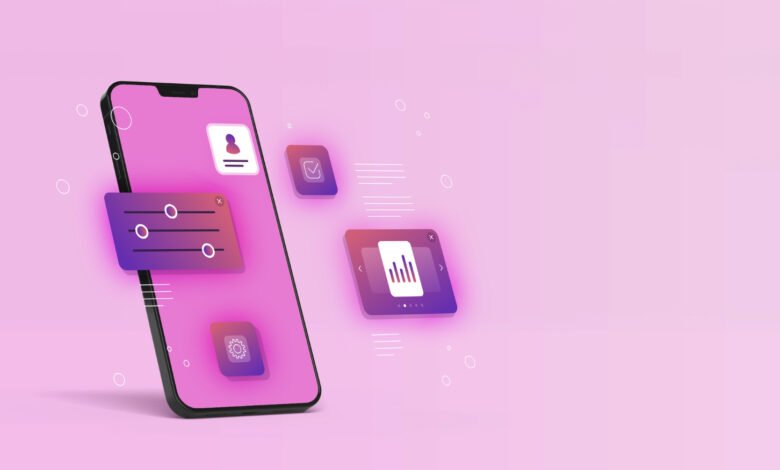
In a fast-paced, digitally driven world, mobile apps have become the cornerstone of business growth and innovation. New York City, one of the most dynamic and competitive markets globally, is no exception. With its diverse economy, vibrant startup ecosystem, and tech-savvy population, NYC presents a prime opportunity for businesses to leverage mobile apps as a strategic tool to enhance customer engagement, streamline operations, and scale their enterprises.
The shift to mobile has already transformed industries such as retail, finance, healthcare, and entertainment, and the demand for digital solutions continues to grow exponentially. For businesses looking to stay ahead of the curve, investing in mobile app development is not just an option but a necessity. Partnering with a mobile app development company in NYC offers access to top-tier talent, local market knowledge, and cutting-edge technologies that can propel your business forward in a competitive landscape.
In this blog, we’ll explore the key reasons why building a mobile app in NYC could be your next smart move and how it can help your business thrive in an increasingly digital world.
1. Tap into New York’s Thriving Digital Ecosystem
New York City is a global hub for technology, finance, media, and more. The city’s diverse economy and vibrant entrepreneurial spirit create fertile ground for businesses seeking to develop innovative mobile applications. From Silicon Alley’s bustling startup scene to established corporations embracing digital transformation, NYC offers a dynamic environment that fosters creativity, innovation, and collaboration.
Building a mobile app in NYC gives businesses access to this thriving digital ecosystem. Whether you’re looking to create a cutting-edge fintech app, a breakthrough e-commerce platform, or a revolutionary healthcare solution, the city offers a vast pool of tech talent, investors, and industry experts who can help bring your vision to life.
Moreover, New York’s rich mix of industries means that businesses have a wealth of opportunities to tap into niche markets and create apps tailored to specific needs, whether it’s improving customer experiences or streamlining operations within a particular sector.
2. Meet the Expectations of New York’s Tech-Savvy Consumers
New Yorkers are known for their fast-paced lifestyles, high expectations, and demand for convenience. With a population that heavily relies on mobile devices for everything from shopping to commuting, banking, and entertainment, a well-designed mobile app can significantly enhance your business’s visibility and accessibility.
Today’s consumers expect seamless, intuitive, and engaging experiences when interacting with businesses online, and mobile apps are often the preferred method of interaction. For businesses in NYC, having a mobile app can help meet these expectations by providing users with instant access to services, personalized content, and a smooth user experience.
For example, restaurants in NYC use mobile apps for easy online ordering and delivery tracking, fitness centers offer app-based class bookings and memberships, and retail stores enable mobile shopping and loyalty programs. By offering your customers a convenient way to interact with your business through an app, you can foster loyalty, increase engagement, and boost customer satisfaction.
3. Enhance Customer Engagement and Retention
One of the biggest advantages of having a mobile app is the ability to engage directly with customers and build lasting relationships. Mobile apps allow businesses to stay connected with their audience 24/7, offering a personalized and immersive experience that can drive engagement and retention.
For NYC businesses, where competition is fierce, staying top-of-mind with customers is crucial. A mobile app provides an effective channel for communicating with users through push notifications, in-app messaging, and personalized offers based on user preferences and behavior.
By leveraging data analytics, businesses can gain valuable insights into customer behavior, preferences, and pain points. This data can be used to tailor content, offers, and experiences to individual users, creating a more personalized and relevant app experience that drives customer loyalty.
For instance, retail businesses can use mobile apps to send targeted promotions or discounts to customers based on their past purchases. Restaurants can offer exclusive deals to app users or allow them to customize their orders through the app. The possibilities for enhancing customer engagement through mobile apps are endless, and the results can significantly impact your bottom line.
4. Boost Brand Visibility and Recognition
In a city as bustling as New York, standing out from the competition is no small feat. A mobile app can help your business cut through the noise and increase brand visibility in a highly saturated market. By placing your brand directly in the hands of consumers, mobile apps serve as a constant reminder of your business’s presence and offerings.
A well-designed app with a unique user experience can create a memorable impression that reinforces your brand identity. The more frequently users interact with your app, the more likely they are to become loyal customers who advocate for your brand.
Additionally, mobile apps enable businesses to leverage powerful branding elements such as logos, color schemes, and messaging. By creating a cohesive brand experience across all touchpoints, including your app, website, and social media, you can build stronger brand recognition and loyalty among your target audience.
5. Capitalize on New Revenue Streams
Mobile apps can open up new revenue streams for businesses, offering innovative ways to monetize products and services. Whether through in-app purchases, subscriptions, ads, or premium features, apps allow businesses to generate additional income beyond traditional sales channels.
For example, an e-commerce business in NYC might create a mobile app that offers exclusive products or deals only available to app users. Fitness studios could offer premium content, such as on-demand workout videos or personalized coaching, through their mobile app.
By implementing various monetization strategies, businesses can maximize the potential of their mobile app and create new growth opportunities. With the right strategy in place, your app could become a significant revenue generator that complements your existing business model.
6. Streamline Operations and Improve Efficiency
Mobile apps aren’t just for customer engagement—they can also help streamline internal operations and improve overall efficiency within your business. Whether you’re managing a team of employees, processing orders, or tracking inventory, mobile apps can help automate and simplify many tasks that would otherwise require manual effort.
For example, a mobile app for a restaurant could integrate with its point-of-sale (POS) system to streamline the ordering process, allowing customers to place orders directly from their phones. In retail, mobile apps can provide real-time inventory management, reducing the risk of stockouts and ensuring that orders are fulfilled promptly.
By automating routine tasks and improving communication between teams, mobile apps can help businesses operate more efficiently, reduce errors, and ultimately improve the bottom line. NYC businesses that prioritize operational efficiency through mobile apps are better positioned to scale and compete in the city’s fast-paced market.
7. Stay Competitive in a Mobile-First World
Mobile technology is no longer a luxury—it’s a necessity for businesses looking to remain competitive in today’s digital landscape. Consumers now spend more time on mobile devices than on desktops, and businesses that fail to adapt risk falling behind.
In NYC, where innovation and adaptability are key to survival, staying competitive means embracing mobile-first strategies that prioritize the customer experience. By investing in a mobile app, businesses can cater to the preferences of modern consumers who expect quick, convenient, and personalized interactions.
A mobile-first approach also ensures that your business remains accessible across all devices, providing a consistent experience whether users are interacting with your brand via smartphones, tablets, or wearable devices. This flexibility is crucial for meeting the demands of today’s omnichannel consumers and staying relevant in an ever-changing marketplace.
Conclusion
Building a mobile app in NYC is not just a smart move—it’s an essential step for businesses looking to thrive in an increasingly competitive and digitally driven environment. From enhancing customer engagement and brand visibility to streamlining operations and capitalizing on new revenue streams, mobile apps offer a wealth of opportunities for growth and success.
As businesses look to the future, partnering with a mobile app development company in NYC is key to navigating the complexities of app development and ensuring that your app delivers a seamless and engaging experience for users. Whether you’re developing an app for retail, hospitality, healthcare, or any other industry, the right development partner can help bring your vision to life.
Ultimately, the question isn’t whether you should build a mobile app for your NYC business—it’s how to develop an app that will truly stand out, capture your audience’s attention, and drive lasting success in the digital age. With the right strategy and a commitment to innovation, your mobile app can become a powerful tool for growth, helping your business reach new heights in 2025 and beyond.



